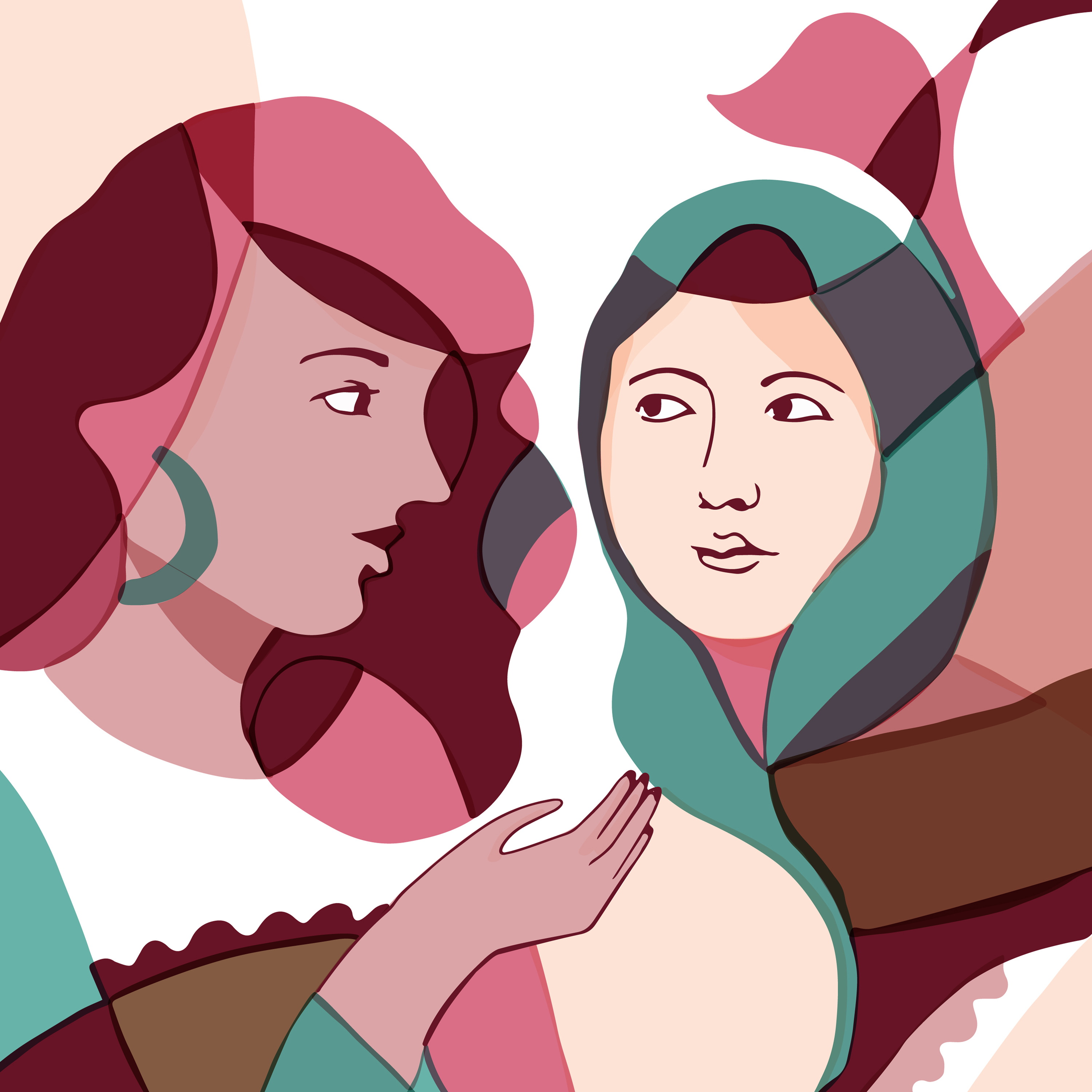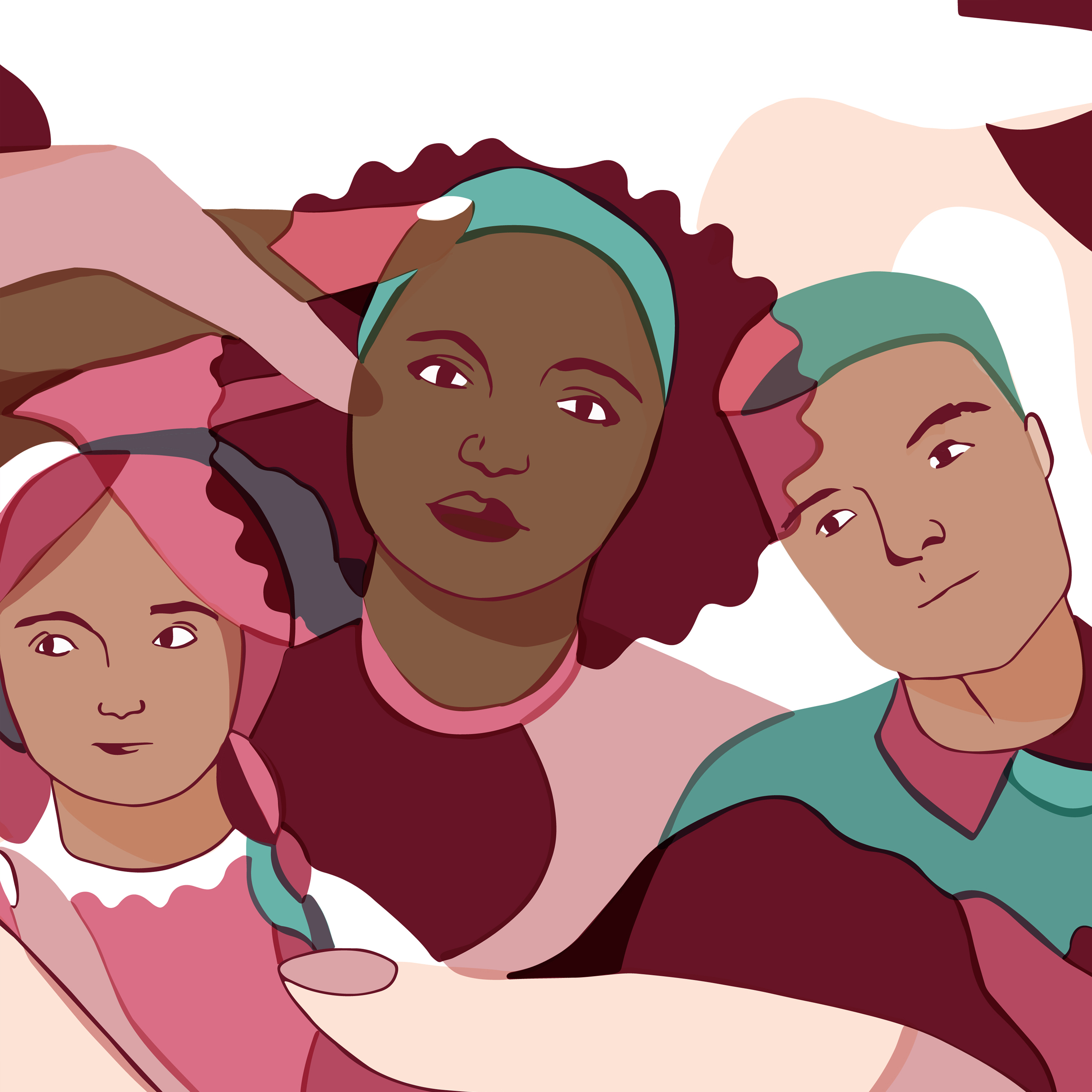Supporting Survivors of Female Genital Mutilation in Austria
There are over 200 million people affected by Female Genital Mutilation/Cutting (FGM/C) worldwide, at least 44 million of them under the age of 15. In Europe, it is estimated that more than 600,000 women are living with the consequences of FGM/C. A further 190,000 girls and women are at risk of undergoing the harmful practice in 17 European countries alone.
Female Genital Mutilation/Cutting (FGM/C) is "the partial or total removal or other injury of the external female genital organs for non-medical reasons." (WHO, 2008). It is most prevalent in western, eastern, and north-eastern regions of Africa, in some Asian countries, and in the Middle East, and usually takes place before puberty. Women who have undergone this procedure often suffer from its consequences for the rest of their lives, which can include:
- Chronic inflammation and pain in the abdomen
- Pain during urination, urinary tract infections, menstruation, and intimacy
- Complications during pregnancy and childbirth
- Depression, panic attacks and trauma
Due to migration movements in recent years, the number of girls and women affected by or at risk of FGM/C is also increasing in Austria. To support survivors of FGM/C, and to better train professionals in doing so, the Austria-wide FGM/C Coordination Office was created by the Austrian Red Cross, the Women's Health Centre FEM Süd, the Women's Health Centres Linz and Salzburg and the Men's Health Centre MEN. It works as a contact point, providing counselling, information and support related to FGM/C for those seeking help, experts, and communities.

The FGM/C Coordination Office offers free telephone counselling via an Austria-wide information hotline. Women affected by or at risk of FGM/C as well as professionals, experts, and interested parties who need support or information on the topic can contact this hotline. The FGM/C Coordination Office also offers free counselling directly in its centres in Vienna, Graz, Innsbruck, Linz and Salzburg. The centres serve as a one-stop shop where survivors can receive information, support and confidential individual counselling on medical, psychological, and legal matters.
Besides counselling targeted at FGM/C survivors, awareness-raising work with professionals in this field is important to provide the best possible support to affected women and girls. The FGM/C Coordination Office therefore offers training for professionals who may come into contact with those at risk of or affected by FGM/C in their daily work, such as members of health, social, or educational professions. The courses disseminate knowledge and raise awareness on the prevalence and consequences of FGM/C and other forms of tradition-related violence, and the legal circumstances surrounding these practices.
The courses help professionals acquire the knowledge necessary to communicate with survivors respectfully and in a culturally sensitive manner. “The training gave me an incredible amount of new information about the subject. I feel better prepared with the knowledge I have now for the job as a teacher and now I also know who to turn to when I have questions," says a teaching student who participated in the course. By exposing professionals to the perspectives of mothers and grandmothers supportive of the practice during the trainings, the goal is to teach argumentations which convince women to preserve the health of their daughters and to win them over as fellow campaigners against FGM/C.

Another major concern of the FGM/C Coordination Office is the networking of all actors in the context of FGM/C throughout Austria, which is why it strives to establish and expand connections between actors who are actively engaged against FGM/C.
Finally, working with people from affected communities is essential. The FGM/C Coordination Office therefore also offers workshops for affected or endangered women and girls, as well as for men from communities with a high incidence of FGM/C in their countries of origin. The aim is to prevent FGM/C through targeted education, awareness, and the removal of taboos through the transfer of knowledge regarding the physical and mental consequences for the survivor, and the potential legal challenges for those performing it. As a next step, workshop participants are trained to amplify these messages within their communities.
Women who suffer from the consequences of FGM/C should receive the best possible medical, psychological, and legal assistance so they can live freely. To achieve this goal, a sustainable network of actors is needed, uniting communities and the health, social care, and education sectors. This first Austria-wide FGM/C Coordination Office is an important step in this direction, but there is still a lot of work to be done.
Basic information
Activity name
FGM/C Koordinationsstelle – Kompetenzzentrum Österreich (FGM/C Coordination Office)
Country
Austria
Duration
January 2022 - December 2023
Partners
Austrian Red Cross (Tyrol and Styria), Women's Health Center FEM Süd, Linzer Frauen Gesundheitszentrum (Women’s Health Centre Linz), Frauengesundheitszentrum Salzburg (Women’s Health Centre Salzburg), MEN (Men’s Health Centre)
URL
https://fgm-koordinationsstelle.at/
Resources
Informative flyer “Protecting my daughter” (in English); Informative flyer about the FGM/C Coordination Office (in German); Brochure “STOP! Against violence against women and girls” (in German);
More materials can be found here (in German).
Are you located in Austria and
- affected by FGM/C and in need of counselling related to FGM/C?
- interested in receiving training or participating in a workshop related to FGM/C?
You can contact the info hotline of the project under +43 1 267 7 267, or send an email to info@fgm-koordinationsstelle.at

